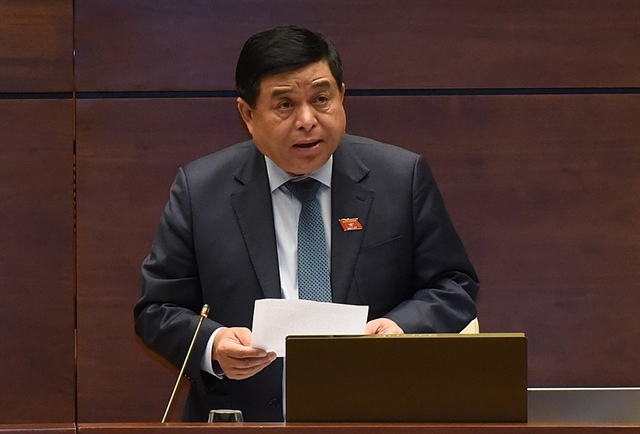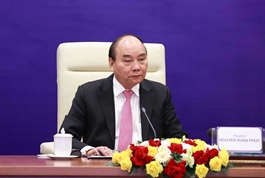Without raising public debt, Vietnam would miss opportunities for growth: Investment Minister
Without raising public debt, Vietnam would miss opportunities for growth: Investment Minister
A large-scale economic recovery plan may be put into motion right in early 2022 upon receiving approval from the National Assembly.
Without raising the threshold of fiscal deficit and public debt, Vietnam could miss the opportunity for growth.

Minister of Planning and Investment Nguyen Chi Dung at the session. Photo: quochoi.vn |
“A lack of economic growth jeopardizes Vietnam’s possibility of achieving the five-year or 10-year development goals, which lay the foundation for Vietnam to become a developed country by 2045.”
Minister of Planning and Investment Nguyen Chi Dung made the statement during a discussion session held by the National Assembly (NA) today [November 11], in response to a question from a NA deputy over financial risks related to stimulus packages.
Dung also pointed out the risk of missing out on opportunities offered by Industry 4.0, the demographic dividend, the network of free trade agreements that Vietnam is a part of, and the ongoing shift in global investment activities.
“Economic growth coming from stimulus programs not only boosts socio-economic development but also helps create jobs and expand the economic size,” Dung said, adding it would lower public debt as a result.
Giving a more detailed view on the economic recovery plan under discussion, Dung expected the program to be sufficient in size to aid growth and ensure macroeconomic stability at the same time.
“The program would provide support for both the supply and demand sides of the economy while staying in line with current socio-economic development plans,” he said.
“The main goal for the Government in drafting such a program is to ensure its feasibility, support sectors being hit hard by the pandemic or with high potential for growth, and also within the capability of the economy,” Dung said.
According to Dung, the plan may be put into motion during the 2022-2023 period once the NA approves it. “In case the National Assembly ratifies the package in late 2021, it will be effective right in early next year,” he concluded.
|

























